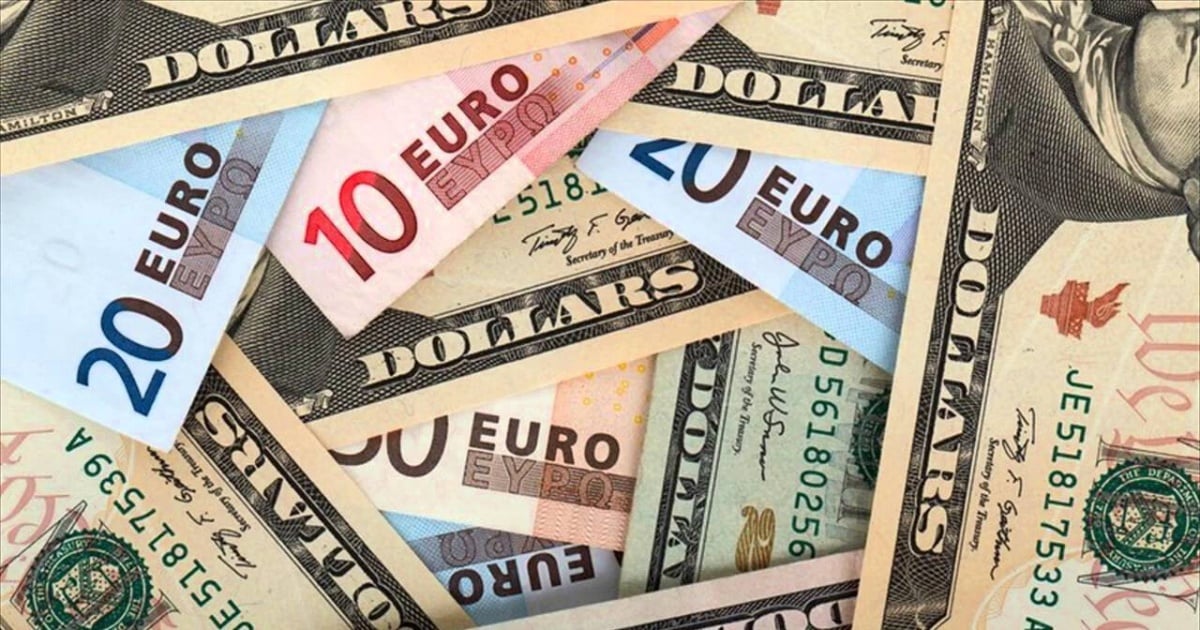
The independent media outlet elToque, which since 2019 has been documenting the ups and downs of reference currency prices in Cuba's informal market, gave its opinion on the sharp decline that the value of dollars, euros, and MLC has experienced in the last week.
The announcement of the reestablishment of remittance services to the island through Western Union (on May 9) and the proximity to a fixed rate (400 CUP per 1 USD) could have influenced the expectations, the so-called 'market sentiment', noted economist Pavel Vidal Alejandro in an extensive article published this Tuesday.
The economist pointed out that a "new balance has been achieved in the consensus and attitude of market participants."
That is, "an increasing number of people began to consider that the price of currencies was excessively high and chose to sell before a possible drop," which boosted the supply.
That viewpoint was also suggested this week by Pedro Monreal when questioned on Twitter about the topic.
Pavel Vidal stated that since mid-May - coinciding with the beginning of the decline of the three reference currencies - there has been a significant increase in the supply of foreign currency in the sample monitored in virtual spaces.
On the other hand, ElToque pointed out that it is natural for "temporary corrections to occur after an extended bullish period in the market."
He explained that since 2022, there have been six pronounced and consecutive drops in the values of currencies, which have lasted in some cases for weeks, but then have recovered.
Is the Cuban peso really appreciating these days?
Pavel Vidal Alejandro believes that the fundamental factors explaining the internal and external imbalances in the Cuban economy have not changed, and therefore "the current turning point in the rate should not be associated with a modification of the trend."
Over the past four years, the value of the Cuban peso has shown a consistent trend towards depreciation, which is consistent with high fiscal deficits, excessive issuance of Cuban pesos, contraction of domestic production and exports, increasing dependence on imported products and supplies, dollarization, emigration, and widespread and persistent inflation in the markets. In other words, the crisis continues and there is no reason for the peso to change its trend towards devaluation.
And there's more, the growth of tourism has slowed down, goods exports fell short of expectations, and the sugar harvest is still unable to stabilize production. To make matters worse, by the end of February this year, the State budget imbalance accumulated over 20,000 million pesos.
On the other hand, there is "the chronic dollar deficit in the face of the constant and inflated expansion in the amount of Cuban pesos in circulation," which consolidates the upward trend in the trajectory of the informal exchange rate.
Is it possible to know for certain what is going to happen? That is also what complicates the Toque because it considers that "there are many information gaps that hinder measuring with greater precision the magnitude and evolution of the current crisis."
The government's strategy to reactivate and stabilize the economy is even less understood. With such opacity in economic data and policies, it is more complex to approximate the market's equilibrium value. It should come as no surprise that the informal exchange rate is a victim of unnecessary uncertainty in its trajectory.
ElToque took the opportunity to make it clear that the decrease in currency exchange rates occurred without the need for the publication of the report to be paused, confirming "the autonomy and randomness with which the informal value of the peso moves."
Only the Government has economic policy tools (especially fiscal and monetary) and can implement reforms to stabilize and change the direction of the exchange rate. As long as it does not do so, the exchange rate will continue to reflect the price of immobilism, continuity, and uncertainty," they concluded.
Another point of view on the collapse of currencies in Cuba.
The Cuban economist Emilio Morales stated this week in an interview granted to CiberCuba that it is "impossible" for the Cuban peso to have revalued by itself, gaining ground against the dollar as has happened in recent days, and attributed the fall in the informal exchange rate of currencies to maneuvers by UCI's cyberwarfare operators in the island.
In Emilio Morales' opinion, the only news that can alone revalue the peso is "the fall of the Government," because it would finally open up hope for a change of system.
Morales also ruled out that the decrease in the price of dollars, euros, and MLC in Cuba is due to a supposed injection of foreign currency in the informal market.
"Where are they going to get foreign currency if they have power outages every day because they don't have the funds to buy oil? It would have to be a multimillion-dollar injection and they don't have it," he questioned.
In response to the question of whether there could be any mechanism other than the intervention of the clarias to control inflation this week, the economist replied firmly.
That's a lie. Cuba doesn't produce. Where is the productive support for that to happen? It will probably get back on track and overcome the barrier of 400 pesos," he stated.
What do you think?
SEE COMMENTS (2)Filed under: